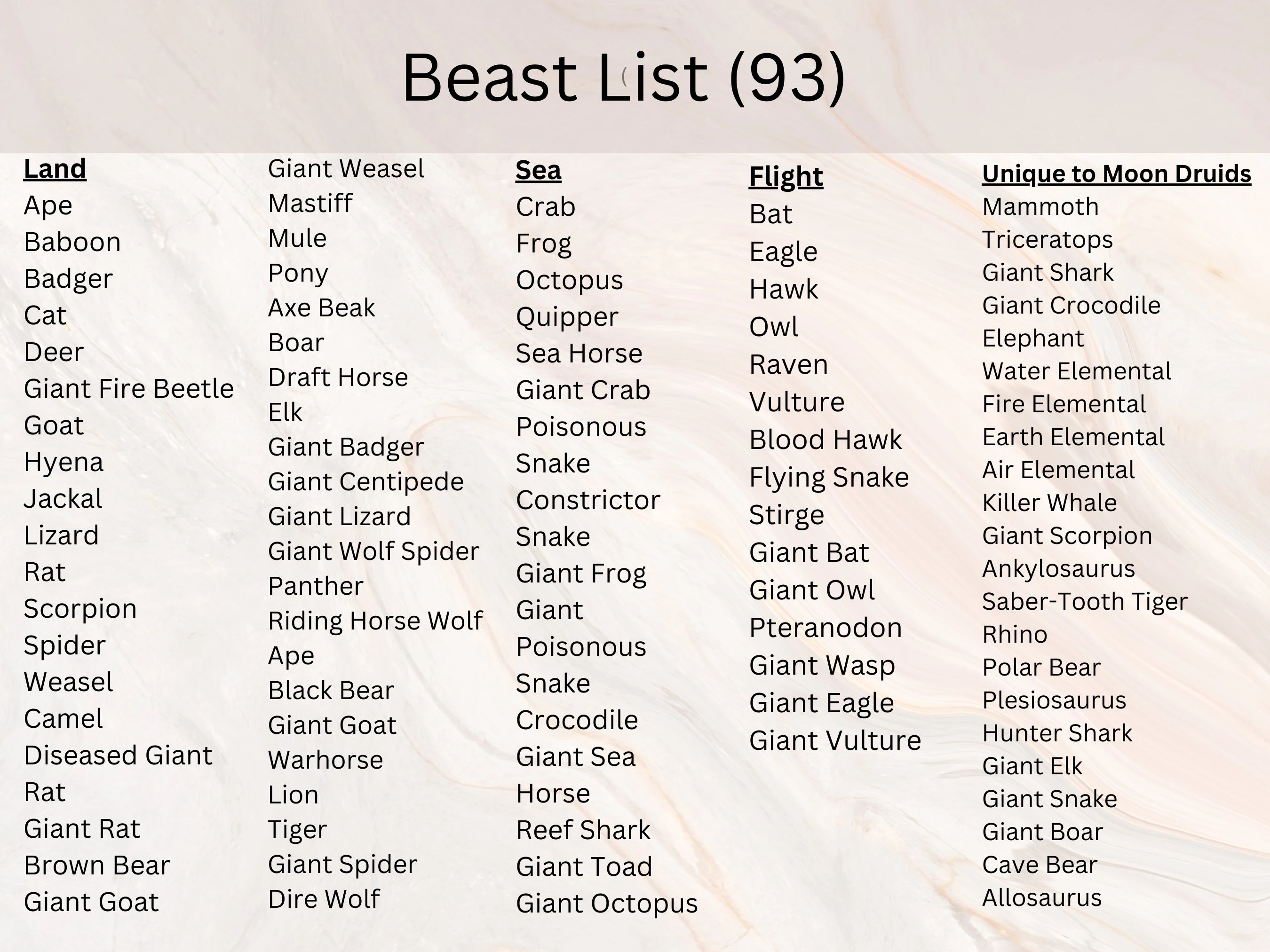Imagine this: you're in the heat of battle, your allies struggling against a fearsome foe. Suddenly, you feel a surge of primal energy coursing through your veins. You drop to all fours, your body contorting, bones snapping and reforming. In seconds, you stand as a bear – a hulking mass of fur and fury, ready to unleash nature's wrath. This is the allure of the Moon Druid, a subclass that embodies the untamed wilderness of Dungeons & Dragons 5th Edition.
At the heart of the Moon Druid's power lies their unparalleled mastery of Wild Shape. Unlike their Circle of the Land counterparts, Moon Druids are not bound by the limitations of the standard Wild Shape feature. They can transform into creatures with a Challenge Rating (CR) equal to their druid level, divided by 3, rounded down. This means that even at lower levels, a Moon Druid can transform into formidable beasts, becoming the stuff of nightmares for their enemies.
The history of druidic magic is deeply intertwined with the natural world, and the Moon Druid embodies this connection like no other. They are drawn to the primal aspects of nature, the raw power of the wild. Their magic is instinctive, visceral, and often unpredictable, reflecting the untamed forces they channel.
While the Moon Druid offers incredible versatility and combat prowess, their path is not without its challenges. Mastering their abilities requires a deep understanding of creature statistics and tactical planning. Choosing the right beast form for a given encounter is crucial, as is knowing when to fight and when to flee. A poorly timed transformation can spell disaster, leaving the druid vulnerable and exposed.
Let's illustrate this with an example. Imagine you're facing a group of goblins, nimble creatures that rely on hit-and-run tactics. Transforming into a Giant Elk, while powerful, might not be the most effective choice due to its size and lack of agility. A more suitable form might be a Giant Spider, allowing you to match their mobility while also ensnaring them in webs. This highlights the strategic depth that the Moon Druid brings to the table, demanding both creativity and careful consideration.
Advantages and Disadvantages of the Moon Druid
| Advantages | Disadvantages |
|---|---|
| Unmatched Wild Shape versatility and power | Can be challenging to master, requiring extensive creature knowledge |
| Excellent combat potential, capable of filling multiple roles | Vulnerable when caught outside of Wild Shape at higher levels |
| Strong thematic connection to nature and the wild | Limited spellcasting options compared to other druid subclasses |
The Moon Druid is a testament to the boundless possibilities within Dungeons & Dragons. Their ability to transform into a vast array of creatures, coupled with their connection to the primal forces of nature, makes them a truly unique and engaging subclass to play. Whether you're drawn to their raw power, their strategic depth, or simply the thrill of becoming the beast, the Moon Druid offers an unforgettable journey into the heart of the wild.
moon druid 5e wild shape sheet - The Brass Coq
moon druid 5e wild shape sheet - The Brass Coq
moon druid 5e wild shape sheet - The Brass Coq
moon druid 5e wild shape sheet - The Brass Coq
moon druid 5e wild shape sheet - The Brass Coq
moon druid 5e wild shape sheet - The Brass Coq
moon druid 5e wild shape sheet - The Brass Coq
moon druid 5e wild shape sheet - The Brass Coq
moon druid 5e wild shape sheet - The Brass Coq
moon druid 5e wild shape sheet - The Brass Coq
moon druid 5e wild shape sheet - The Brass Coq
moon druid 5e wild shape sheet - The Brass Coq
moon druid 5e wild shape sheet - The Brass Coq
moon druid 5e wild shape sheet - The Brass Coq
moon druid 5e wild shape sheet - The Brass Coq













